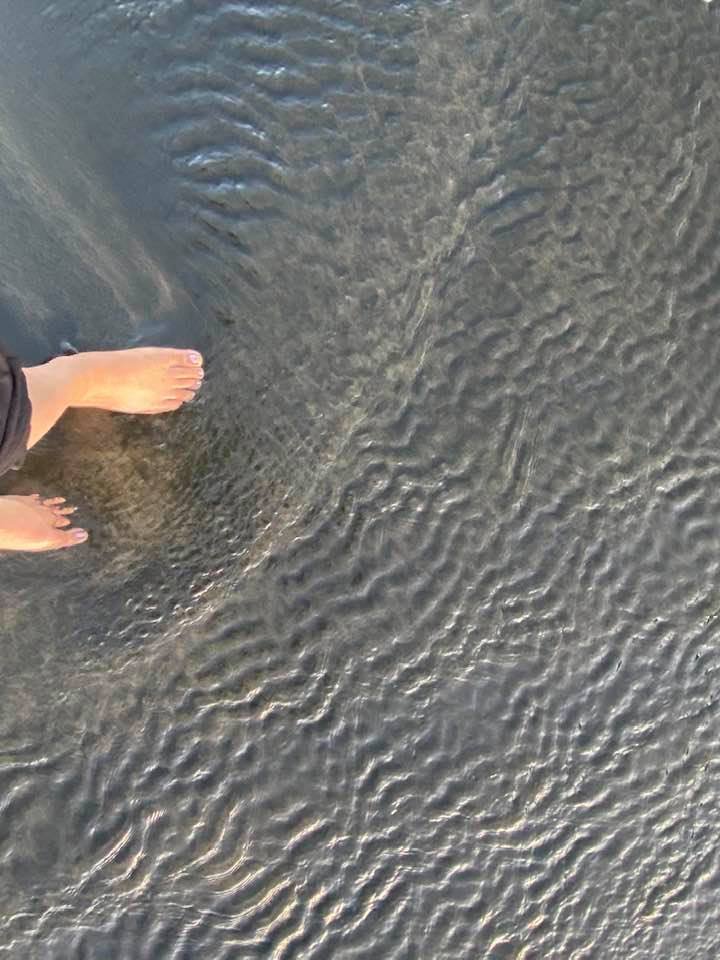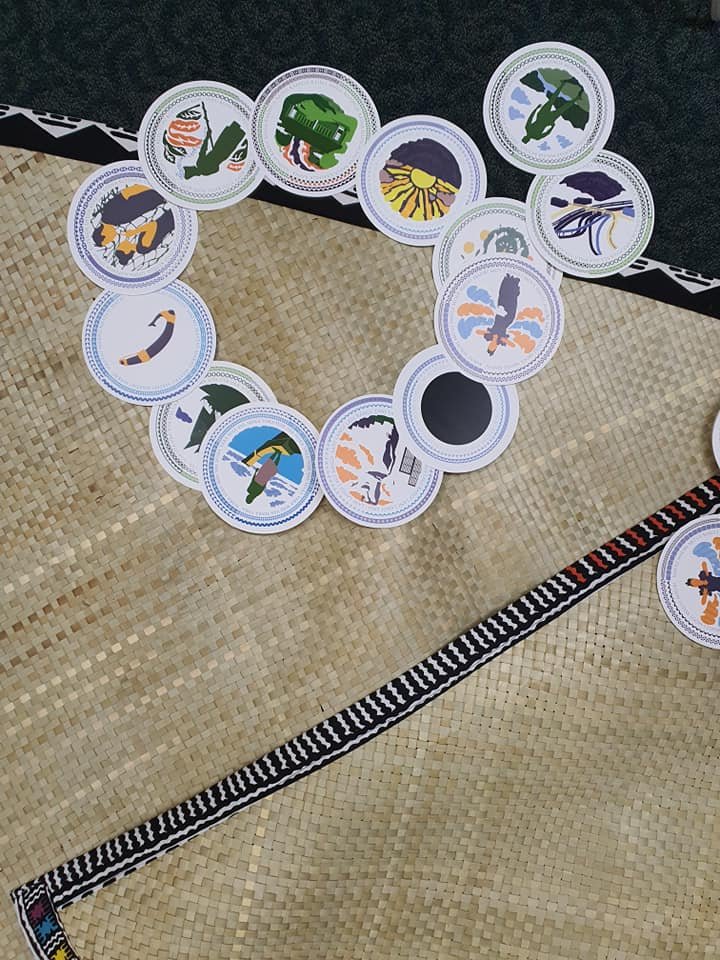
Research origins
In the beginning
A PhD on Pacific identities and wellbeing
In 2010, Karlo Mila completed her PhD that explored the culture, identities and health and wellbeing outcomes for Pacific peoples growing up in Aotearoa. She was searching for understanding about her own population group, Pacific peoples who grow up far from their islands of origin. Without fluency in language and far from homelands, how were they identifying and operating culturally? Did that make a difference? Did it impact on health and educational outcomes.
She found that those Pacific young people who felt proud of their Pacific identities [Tonga, Samoa, Niue, Cook Islands] and said that the values of these culture were still important to them were half as likely to have reported making a suicide attempt in the previous year. Those who felt accepted by people of their own Pacific ethnic background [Tongan, Samoan, Cook Islands, Niue,] and felt accepted by others [generally] were half as likely to be having suicidal thoughts in the previous year and seventy percent less likely to have made a suicide attempt in the previous year.
Recognising the better outcomes experienced by those who felt proud in their identities, strong in appreciating Pacific values, and accepted and connected by their own ethnic communities and others, she coined the term polycultural capital. Polycultural capital described the advantage, strengths and super-powers of Pacific peoples growing up in Aotearoa who were constantly exposed to different ways of operating culturally. Rather than framing them as caught between cultures, this emphasised the benefits of moving between cultural spaces and accumulating the distinctive knowledge paradigms, interpretive frameworks, values, ethics, priorities, beliefs and dominant perspectives prevalent in each culture. Karlo often describes polycultural capital more simply as two different bags filled with different resources and ways of knowing. One is the ‘gucci’ bag that is designed according to Western aesthetic and capital": expensive, ‘designer’, and filled literally with dollars. Metaphorically, this bag is also representative of qualifications, culture, ways of speaking, and knowing what to do in situations requiring cultural capital and ‘power’. For many Pacific migrants, this bag is representative of ‘the migrant dream’, hoping that their children would acquire this bag and all the power and success associated with it.
However, Karlo’s research showed that there was another bag that we could imagine as a finely woven basket. Similarly valuable when made from the finest woven threads, this metaphorically contained a whole different worldview that ascribed value differently. This basket contained a very different set of resources that helped you operate in ways that were considered appropriate, ethical, wise and educated in Pacific cultures. Her PhD showed that those who had both bags to draw from, when making sense of culturally differential circumstances were considerably advantaged compared. They were able to operate drawing from more than one paradigm, transcend the monocultural, and operate skilfully in different situations drawing on completely different - often opposing - key messages dominant in each culture. After completing her interviews and conceptualising polycultural capital, Karlo was determined to use this information to benefit Pacific peoples and for her PhD to make a tangible difference in the world.
Armed with this information, she applied for a postdoctoral fellowship intent on creating an intervention that strengthened pride in Pacific identities, and encouraged the uplifting power of Pacific values. She knew that acceptance across cultures was key, which prioritised relationships but also more cultural resources to make connections successfully.
Postdoctoral Research: Developing an Intervention
In 2010, funded by the Health Research Council, Karlo embarked on a research project exploring: “What is healing in a Pacific mental health context?” She began by designing the approach in the Department of Social Psychiatry at the Wellington School of Medicine, University of Otago under the supervision of Dr Sunny Collings and the mentorship of Tongan psychiatrist, Dr Siale ‘Alo Foliaki. Karlo was helped by two research assistants, Bianca Daniell and Ramona Tiatia to embark on this ambitious project.
This involved a deep dive into the mythology, archetypes, core cultural concepts, proverbs, cosmogony and narratives that could be considered fundamental to psyche among Moana peoples. In addition to this, interviews with Pacific knowledge holders, Pacific clinicians and Pacific mental health service-users were conducted.
Over two years she developed the core of the Mana Moana approach. This is named ‘The Taula’ (anchor). Based on a learning framework by Friere, this contained seventy core elements / concepts in Pacific languages that collectively create the canon of Mana Moana. Each concept was meticulously researched, included a referenced commentary, proverbs in multiple Pacific languages associated with these concepts, translations, and where relevant, a narrative associated with the concept.
Once the Taula was developed as a cultural resource, a retreat-based wānanga was held with leaders working in relevant fields: indigenous epistemology, linguistics, traditional healing, psychiatry, psychology, indigenous development, as well as cultural experts, matai, and leaders. The valuable feedback was that although the creation of the Mana Moana core concept repository with proverbs, translations, images, and accompanying narratives was acceptable, the approach would not be optimal unless it was informed by a healing logic aligned with the way Pacific peoples had healed others for millennia.
Karlo added another year of study to her postdoctoral research trying to determine what a coherent and clear intervention logic might look like, then going out to consult on that approach with more Pacific experts and run more focus groups to see if it was consistent with Pacific understandings, philosophical foundations, values and knowledge paradigms. The approach was tested via formal focus groups for acceptability, and consulted upon for feedback with multiple audiences in many different contexts (youth, elders, workplaces, churches, conferences, community gatherings, influential academics, and cultural leaders). Even though it added an extra year to her postdoctoral fellowship, this process ensured that the intervention approach had cultural integrity and wide buy-in from multiple stakeholders and the Pacific community. When she felt that she had reached saturation point and received enough positive feedback, insights for adaptation and widespread approval, she was ready for the next phase of the research.
The feasibility and acceptability phase of the research was housed within the University of Auckland. The University of Auckland had significant clinical trial and Pacific academic expertise held by Associate Professor Sally Merry and Dr Terry Fleming at the Werry Centre, and Dr Airini in Critical Education.
Dr Evangelene Daniela-Wong
Dr Johnson Witehira
Precious Collaborations
Critical to operationalising Mana Moana was a productive collaboration with Clinical Psychologist Dr Evangeline Daniela-Wong (Mauke, Cook Islands). Dr Daniela-Wong worked in Youth Forensics for Capital Coast District Health Board and was an innovator and expert in culturally responsive Pacific practice. Evangelene had the practical and clinical expertise to operationalise the knowledge Karlo had painstakingly gathered. Dr Daniela-Wong was able to include Mana Moana material in her praxis and make it come to life in ways that Karlo could only dream and hypothesise about. Together they created a facilitators manual, a participant journal, and a detailed programme with well-defined exercises that brought Mana Moana to life.
Karlo worked with Dr Johnson Witehira, a visual designer and artist who specialised in creating cultural credible, practical and beautiful aesthetic. Dr Witehira researched patterns and images with rigour and depth, creating images that were carefully designed to accompany thirty of the core concepts. The resources were tested for acceptability and cultural resonance, and then the whole Mana Moana approach was tested for teachability.
Evangelene and Karlo trained twelve facilitators in the Mana Moana approach, providing manuals and instructions for the Programme “Journey to Motutapu”. Motutapu - meaning sacred islands - referred to an imaginary ancestral island and the programme flow mirrored a full exploration of the island - beginning in the water, getting on board a vaka / waka, landing on shore, finding a path through the wild, going up a maunga (mountain) and then exploring a village. Karlo and Evangelene referred to the ‘library of the land’ positing that each inch of the shared landscape was theorised deeply by Pacific ancestors. Knowledge associated with planting, houses, sheltering from hurricanes, and rolling out the mat for dispute resolutions and return to peaceful relationships informed the curriculum. The idea was that participants would come to the island and be able to leave the shores with the rich bounty of ancestral knowledge and the capacity to travel light, having left behind their burdens that impacted on negative wellbeing.
After the twelve practitioners were trained in this highly metaphorical approach, informed by the intervention logic tested for cultural credibility, three practitioners (a Pacific psychologist and two Pacific social workers) led the programme with a group of Pacific High School prefects. The aim was to increase pride in their Pacific identities, uplift the mana of Pacific values, resource them culturally, assist them to feel connected and accepted in themselves, reduce distress, increase resilience and improve their wellbeing.
This was tested as an open trial of Mana Moana as a 4-domain semi-structured group programme for young people. feasibility and acceptability with great success. A satisfaction survey was administered. Pre- to post-intervention changes were captured using a range of self-report measures and behavioural screening questionnaires, including ‘Strengths and Difficulties’, WHO-5 Well-Being Index, the Pacific Identity and Wellbeing Scale (PIWBS), and a custom-made measure called the Mana Moana Monitor. This custom-designed pre and post measure continues to be used for all Mana Moana programmes. The research origins of Mana Moana continue to be influential in its evolution.
Evolving Iterations and Continuous Evaluation
After the postdoctoral research concluded, there was a desire and opportunity to run this programme for Pacife adults. Louise Marra, Programme Director of Leadership New Zealand assisted with translating the material into a programme suitable for an older age group. A brief six-day prototype was tested with Pacific mental health leaders at the WISE group’s Pacific-oriented NGO ‘Le Va’ in 2016. This was evaluated with excellent results.
With Louise Marra’s encouragement, Leadership New Zealand supported Karlo to apply for funding from Foundation North. In 2017 was developed from a small six-day experience, into a full year leadership programme.
This year-long leadership programme has run with the support of Leadership New Zealand since 2018. It has been continuously evaluated internally and externally with positive results.





